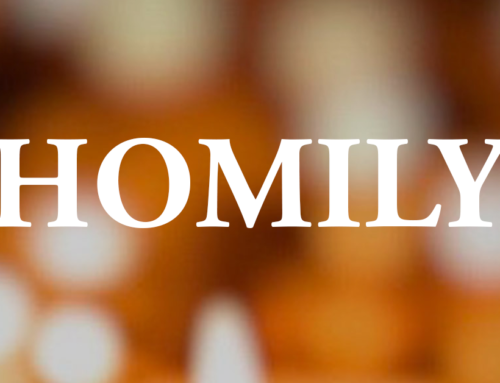“Being One with God”
The law and the prophets. There are a lot of laws in the Old Testament, handed down by prophets. Some 1,200 years before Christ, Moses was given the ten commandments. The first four are about honoring God; the last six — honor your parents, don’t commit murder or adultery and the rest — are rules that make society function better.
Five hundred years later, Isaiah, as we heard today, listed many rules that were being broken — the people were rebellious and failing to honor God by eating pork, hanging out in caves, sacrificing in gardens, burning incense on bricks. God is angry, we are told, and will take revenge. God’s anger is used to instill fear, and fear is used to instill obedience.
Seven hundred years after Isaiah, Jesus changed everything. According to Paul, before Christ, the law was our “disciplinarian.” We were both “imprisoned and guarded” under it “until faith would be revealed.” When Jesus, who was that faith was revealed, was asked which laws were the most important, he responded, “Thou shalt love the Lord your God with all your heart and with all your soul and with all your mind. This is the first and greatest commandment. And the second is like unto it: Love your neighbor as yourself.”
And the second is like unto it. In other words, loving God with all your heart and soul is “like unto” or the same as loving your neighbor as yourself. The two are intertwined — honoring God is not about whether you live in a cave or burn incense on a brick. It’s about being in relationship with God in yourself and your neighbor.
It is no easy task. Seeing God in ourselves can be as hard as seeing God in our neighbors. Jesus saves the man who was beset by demons by showing him that the demons do not define him; they are separate from him. Why? Because he treats the man as a child of God, who is thus one with God. We don’t have to believe in demons — spirits that leap out one body and enter pigs who leap off a cliff — to have experienced “demons” in ourselves — all those things we have done and left undone that leave us isolated, in a cave, naked, and afraid. The Confession is a recognition that we’re human, seeking a path back to wholeness; the Absolution is that path — God forgives you; forgive yourself; forgive others.
We honor God by seeing God, by loving God in ourselves and all creation. As Jesus said, “All the law and the prophets hang on these two commandments” — everything flows from there — that is the new word, the new way of being.
And that is why, according to Paul, “there is no longer Jew or Greek; slave or free; male or female,” us versus them. There is no separation. There is One. One people. One God in and through the universe; in and through each of us. When the ancient prophets proclaimed there was but one God, it was an elimination — not two Gods, not three. Just one. Jesus claimed that through God we are One.
Let us pray.
Dear Lord, in whom we live and breathe and have our being, here in this sacred space and later, as we go out into the world, let us open our hearts to your presence in ourselves and our neighbors, so as to keep us ever aware of the sacred unity we share, in faith — one with you. Amen.
–Penny Duffy
PDF: Homily for Pentecost 2 (Proper 7C)
Written by Penny Duffy
June 19, 2022


